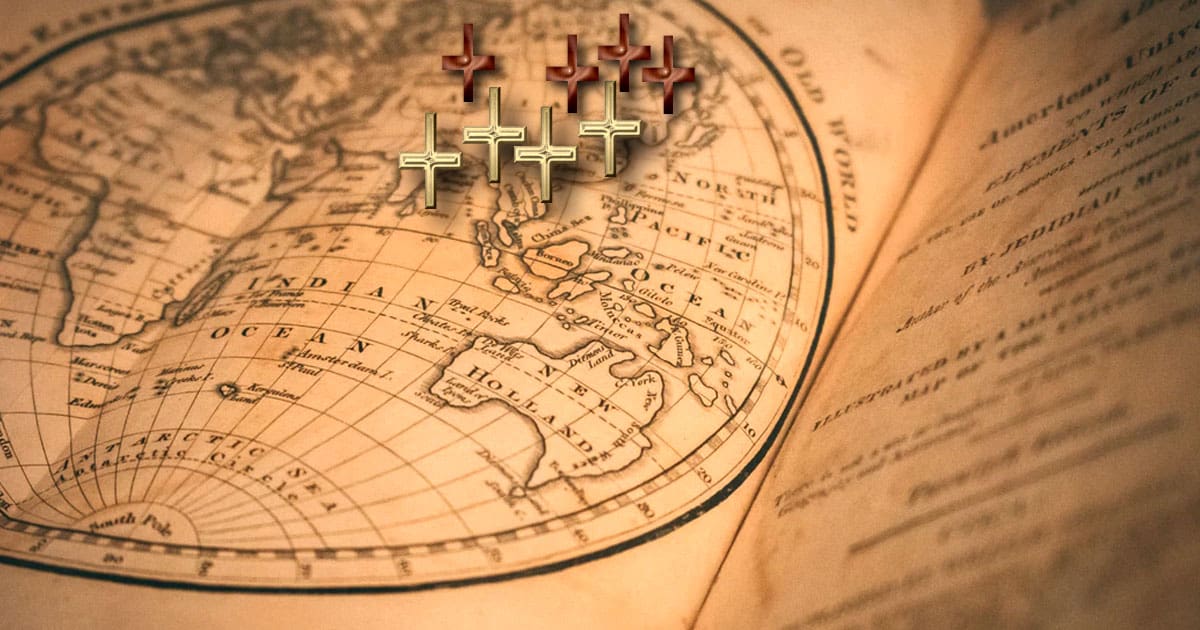How Could This Happen?
Is there anyone who has not, at some time, asked “How could that happen?”
A professor once asked…
“How many Christians do you think there were in the year 100?”
He then asked…
“How many Christians do you think there were just before the end of the persecutions and the beginning the Church’s recognition by the state around the year 310?”
The facts…
Around the year 100 there were some 25,000 Christians. Some 200 years and many persecutions later they numbered some 20,000,000.
How many of you got anywhere near the facts?
The professor then asked the question that has haunted author Alan Hirsch to this day: “How did they do this? How did they grow from being a small movement to the most significant religious force in the Roman Empire, in two centuries?”
Consider a more modern experience in China
Some 50 years ago there were some 2 million Christians in China. (Behind this fact is a little-known story of the impact of Pere Lebbe, CM. He is revered by many as the modern version of the great missionary Francis Xavier.)
Subsequently, a “Cultural Revolution” explicitly aimed to obliterate Christianity (and all religion) from China.
It led to one of the cruelest persecutions of Christians on historical record. Yet today there are some 45 miliion Christians.
Keep in mind that, not unlike the early church, these people had very few Bibles. At times they shared only one page to a house church and then swapped that page with another household.
All this growth should not have happened!
Today we must ask… How could all this have happened?
Before you respond, here are some important things to keep in mind. (The following is taken from The Forgotten Ways, a book by Alan Hirsch dedicated to exploring dimensions of church renewal.)
• They were an illegal religion throughout this period.At best, they were tolerated; at the very worst they were very severely persecuted.
• They didn’t have any church buildings as we know them. While archaeologists have discovered chapels dating from this period, they were definitely exceptions to the rule, and they tended to be “house” churches.
• They didn’t even have the scriptures as we know them.They were putting the canon together during this period.
• They didn’t have an institution or the professional form of leadership normally associated with it. At times of relative calm, prototypical elements of institution did appear, but by what we consider institutional, these were at best pre-institutional.
• They didn’t have seeker-sensitive services, youth groups, worship bands, seminaries, commentaries, etc.
• They actually made it hard to join the church. By the late second century, aspiring converts had to undergo a significant initiation period to prove they were worthy.
It is worthwhile reflecting on this in light of the many restrictions we face at the height of the Covid quarantines.
How do you explain this… and implications for today
Hirsch offers a hint about why he titled this book The Forgotten Ways. He believes that “all God’s people carry within themselves the same potencies that energized the early Christian movement and that are currently manifest in the underground Chinese church.”
Secret ingredients?
- What are these “forgotten” potencies?
- What is missing in our understanding and living as church today?
- How do you think Pope Francis is trying to encourage us to rediscover the dyanmism of the Gospel?
Tags: John Freund







0 Comments